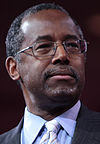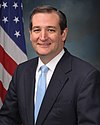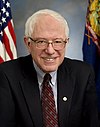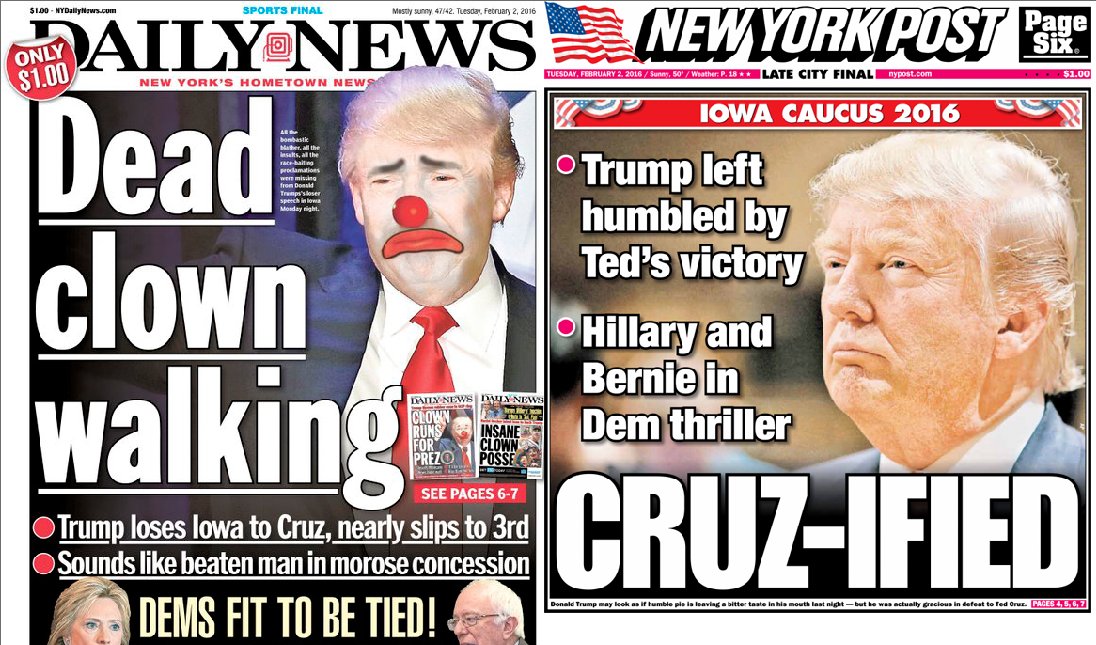POL Politiek
Discussies en diepgaande gesprekken over de politiek in de breedste zin van het woord kun je hier voeren.



De kandidaten
FOK!-analyses
Analyse: het onwaarschijnlijke succes van Donald Trump
Analyse: Jeb Bush blijft de Republikeinse favoriet
De Republikeinse kandidaten
Jeb Bush - Florida
Jeb Bush presidential campaign, 2016
Ben Carson - Maryland
Ben Carson presidential campaign, 2016
Chris Christie - New Jersey
Chris Christie presidential campaign, 2016
Ted Cruz - Texas
Ted Cruz presidential campaign, 2016
Carly Fiorina - California
Carly Fiorina presidential campaign, 2016
Mike Huckabee - Arkansas
Mike Huckabee presidential campaign, 2016
John Kasich - Ohio
John Kasich presidential campaign, 2016
Rand Paul - Kentucky
Rand Paul presidential campaign, 2016
Marco Rubio - Florida
Marco Rubio presidential campaign, 2016
Rick Santorum - Pennsylvania
Rick Santorum presidential campaign, 2016
Donald Trump - New York
Donald Trump presidential campaign, 2016
Jim Gilmore - Virginia
Jim Gilmore presidential campaign, 2016
Afgevallen kandidaten:
Rick Perry
Scott Walker
Mark Everson
Bobby Jindal
Lindsey Graham
George Pataki
De Democratische kandidaten
Hillary Clinton - New York
Hillary Clinton presidential campaign, 2016
Martin O'Malley - Maryland
Martin O'Malley presidential campaign, 2016
Bernie Sanders - Vermont
Bernie Sanders presidential campaign, 2016
Afgevallen kandidaten:
Lincoln Chafee
Jim Webb
Lawrence Lessig
Poll: Op welke republikein zou jij stemmen?
• Jeb Bush
• Ben Carson
• Chris Christie
• Ted Cruz
• Carly Fiorina
• Jim Gilmore
• Lindsey Graham
• Mike Huckabee
• Bobby Jindal
• John Kasich
• George Pataki
• Rand Paul
• Rick Perry
• Marco Rubio
• Rick Santorum
• Donald Trump
• Scott Walker
Tussenstand:
Ook een poll maken? Klik hier
Poll: Op welke democraat zou jij stemmen?
• Lincoln Chafee
• Hillary Clinton
• Martin O'Malley
• Bernie Sanders
• Jim Webb
• Lawrence Lessig
• Joe Biden
Tussenstand:
Ook een poll maken? Klik hier
OP met dank aan Odaiba.
Game on. .
.
FOK!-analyses
Analyse: het onwaarschijnlijke succes van Donald Trump
Analyse: Jeb Bush blijft de Republikeinse favoriet
De Republikeinse kandidaten
Jeb Bush - Florida
Jeb Bush presidential campaign, 2016
Ben Carson - Maryland
Ben Carson presidential campaign, 2016
Chris Christie - New Jersey
Chris Christie presidential campaign, 2016
Ted Cruz - Texas
Ted Cruz presidential campaign, 2016
Carly Fiorina - California
Carly Fiorina presidential campaign, 2016
Mike Huckabee - Arkansas
Mike Huckabee presidential campaign, 2016
John Kasich - Ohio
John Kasich presidential campaign, 2016
Rand Paul - Kentucky
Rand Paul presidential campaign, 2016
Marco Rubio - Florida
Marco Rubio presidential campaign, 2016
Rick Santorum - Pennsylvania
Rick Santorum presidential campaign, 2016
Donald Trump - New York
Donald Trump presidential campaign, 2016
Jim Gilmore - Virginia
Jim Gilmore presidential campaign, 2016
Afgevallen kandidaten:
Rick Perry
Scott Walker
Mark Everson
Bobby Jindal
Lindsey Graham
George Pataki
De Democratische kandidaten
Hillary Clinton - New York
Hillary Clinton presidential campaign, 2016
Martin O'Malley - Maryland
Martin O'Malley presidential campaign, 2016
Bernie Sanders - Vermont
Bernie Sanders presidential campaign, 2016
Afgevallen kandidaten:
Lincoln Chafee
Jim Webb
Lawrence Lessig
Poll: Op welke republikein zou jij stemmen?
• Jeb Bush
• Ben Carson
• Chris Christie
• Ted Cruz
• Carly Fiorina
• Jim Gilmore
• Lindsey Graham
• Mike Huckabee
• Bobby Jindal
• John Kasich
• George Pataki
• Rand Paul
• Rick Perry
• Marco Rubio
• Rick Santorum
• Donald Trump
• Scott Walker
Tussenstand:
Ook een poll maken? Klik hier
Poll: Op welke democraat zou jij stemmen?
• Lincoln Chafee
• Hillary Clinton
• Martin O'Malley
• Bernie Sanders
• Jim Webb
• Lawrence Lessig
• Joe Biden
Tussenstand:
Ook een poll maken? Klik hier
OP met dank aan Odaiba.
Game on.
Heilwasser stammt aus unterirdischen, vor Verunreinigung geschützten, ursprünglichen reinen Wasservorkommen.


twitter:realDonaldTrump twitterde op maandag 30-12-2013 om 21:55:37 “No one remembers who came in second.” - Walter Hagen reageer retweet
Heilwasser stammt aus unterirdischen, vor Verunreinigung geschützten, ursprünglichen reinen Wasservorkommen.


Mooi systeem.quote:Op dinsdag 2 februari 2016 09:38 schreef Bram_van_Loon het volgende:
http://www.desmoinesregis(...)-coin-flip/79680342/
Heilwasser stammt aus unterirdischen, vor Verunreinigung geschützten, ursprünglichen reinen Wasservorkommen.


Misschien kun je de OP even aanpassen door Mike Huckabee (R) en Martin O'Malley (D) te verplaatsen naar het rijtje afgevallen kandidaten. Thanks.quote:Op dinsdag 2 februari 2016 09:37 schreef Heilwasser het volgende:
twitter:realDonaldTrump twitterde op maandag 30-12-2013 om 21:55:37 “No one remembers who came in second.” - Walter Hagen reageer retweet


Definieer de 'Zuidelijke democraten'. Sanders is vooral de kandidaat van de blanke, hoogopgeleide jongeren. In South Carolina staat hij vooralsnog mijlenver achter op Clinton bijvoorbeeld.quote:Op dinsdag 2 februari 2016 09:37 schreef Pokkelmans het volgende:
Hoe ligt Sanders bij de zuidelijke democraten?
Volkorenbrood: "Geen quotes meer in jullie sigs gaarne."


Bush's final rally interrupted by 'seat fillers' demanding to be paid
Of zouden het boefjes van een ander campagneteam zijn om Bush te besmeuren?
Of zouden het boefjes van een ander campagneteam zijn om Bush te besmeuren?
Heilwasser stammt aus unterirdischen, vor Verunreinigung geschützten, ursprünglichen reinen Wasservorkommen.


Ik las het ook netquote:Op dinsdag 2 februari 2016 09:50 schreef Heilwasser het volgende:
Bush's final rally interrupted by 'seat fillers' demanding to be paid
Of zouden het boefjes van een ander campagneteam zijn om Bush te besmeuren?


Jeb! heeft een uitstekend resultaat in New Hampshire nodig. Daar heeft hij z'n peilen ook op gericht. Als het daar misgaat, is het einde oefening. Maar het zou ook mee kunnen vallen. Even afwachten dus. Jeb! had weinig energie gestoken in Iowa. Hij lijkt op de valreep toch nog één gedelegeerde te krijgen; beter dan niks.quote:


Normaliter is Iowa ook helemaal niet de staat voor een kandidaat als Jeb, maar wat het vooral extra pijnlijk maakt is dat z'n Super PAC echt flink wat geld heeft gepompt in Iowa om hier een goed resultaat neer te zetten.quote:
Volkorenbrood: "Geen quotes meer in jullie sigs gaarne."


Au.quote:Op dinsdag 2 februari 2016 09:50 schreef Heilwasser het volgende:
Bush's final rally interrupted by 'seat fillers' demanding to be paid
Of zouden het boefjes van een ander campagneteam zijn om Bush te besmeuren?


Donald Trump begon een toespraak met vertellen dat er volgens zijn beveiliging tomatengooiers in het publiek konden zijn en gaf het publiek de opdracht iedereen die een tomaat gooit in elkaar te rammen en beloofde de juridische kosten te betalen aan elke persoon die dat deed. 


De traditionele redneck-staten, zeg maar. Ik dacht dat Sanders bij de zwarte Amerikanen ook wel goed zou liggen gezien zijn achtergrond in de emancipatie van die bevolkingsgroep.quote:Op dinsdag 2 februari 2016 09:49 schreef Monolith het volgende:
[..]
Definieer de 'Zuidelijke democraten'. Sanders is vooral de kandidaat van de blanke, hoogopgeleide jongeren. In South Carolina staat hij vooralsnog mijlenver achter op Clinton bijvoorbeeld.
Versterkt of verzwakt het resultaat van Iowa Sanders' positie als serieuze kandidaat?


Versterkt. Hillary is niet meer unbeatable, omdat niemand hoort dat ze heeft gewonnen. In elke zin dat hillary wordt genoemd hoor je nu ook Sanders. Hij wordt steeds bekender, en staat 20 punten voor in New Hampshire. In staat 1 is het dus gelijk, en dan in staat 2 wint hij. Moet je nagaan wat dat met de polls gaat doen.quote:Op dinsdag 2 februari 2016 10:46 schreef Pokkelmans het volgende:
[..]
Versterkt of verzwakt het resultaat van Iowa Sanders' positie als serieuze kandidaat?
“Advertising is based on one thing, happiness. Happiness is the smell of a new car. It’s a billboard on the side of the road that screams reassurance that whatever you are doing is okay. You are okay.”
-Don Draper
-Don Draper


Klopt ook wel. Maar Clinton is bij Afro-Amerikanen gewoon een nog beter merk.quote:Op dinsdag 2 februari 2016 10:46 schreef Pokkelmans het volgende:
[..]
De traditionele redneck-staten, zeg maar. Ik dacht dat Sanders bij de zwarte Amerikanen ook wel goed zou liggen gezien zijn achtergrond in de emancipatie van die bevolkingsgroep.
Versterkt of verzwakt het resultaat van Iowa Sanders' positie als serieuze kandidaat?
Choking on those tossed salads and scrambled eggs


Lastig te zeggen, een slecht resultaat is het zeker niet voor Sanders. Een kleine of zelfs ruime overwinning hier had hem wellicht echt wat momentum gegeven. Feit blijft wel dat dit zowel Iowa als New Hampshire hele blanke staten zijn en Sanders goed moeten liggen. Vooralsnog wint Hillary het ruim bij de zwarte Amerikanen en de Hispanics, zoals bijvoorbeeld ook te zien is in de peilingen voor South Carolina. Verder is het vooral wachten op Super Tuesday op 1 maart. Daar zit dit jaar ook Texas bij, waar met, zo uit m'n hoofd, rond de 220 pledged delegates een stuk meer te winnen is dan de 44 in Iowa of 24 in NH.quote:Op dinsdag 2 februari 2016 10:46 schreef Pokkelmans het volgende:
[..]
De traditionele redneck-staten, zeg maar. Ik dacht dat Sanders bij de zwarte Amerikanen ook wel goed zou liggen gezien zijn achtergrond in de emancipatie van die bevolkingsgroep.
Versterkt of verzwakt het resultaat van Iowa Sanders' positie als serieuze kandidaat?
Volkorenbrood: "Geen quotes meer in jullie sigs gaarne."


Weinig, zolang hij z'n support onder vrouwen, zwarte Amerikanen en Latino's niet drastisch weet te verhogen. De naamsbekendheid van Bernie onder Democraten is verder ook gewoon erg hoog hoor.quote:Op dinsdag 2 februari 2016 10:53 schreef SherlockHolmes het volgende:
[..]
Versterkt. Hillary is niet meer unbeatable, omdat niemand hoort dat ze heeft gewonnen. In elke zin dat hillary wordt genoemd hoor je nu ook Sanders. Hij wordt steeds bekender, en staat 20 punten voor in New Hampshire. In staat 1 is het dus gelijk, en dan in staat 2 wint hij. Moet je nagaan wat dat met de polls gaat doen.
Volkorenbrood: "Geen quotes meer in jullie sigs gaarne."


Government exists to protect us from each other. Where government has gone beyond its limits is in deciding to protect us from ourselves.


Wat een heldenbaasquote:
Ik hoop het zó he! Deze Iowa caucus geeft toch wel een extra boost hoop.
quote:Op dinsdag 2 februari 2016 09:37 schreef Heilwasser het volgende:
twitter:realDonaldTrump twitterde op maandag 30-12-2013 om 21:55:37 “No one remembers who came in second.” - Walter Hagen reageer retweet
Fuck the EBU.


Als je naar de voorspelling van fivethirtyeight kijkt komt het redelijk overeen met de uitslag.
Trump rond de 25% en de Huckabee stemmers zijn overgelopen naar Cruz en de gematigde naar Rubio. Misschien hebben veel mensen op cruz en Rubio gestemd om Trump te stoppen.
http://projects.fivethirt(...)ast/iowa-republican/
Trump rond de 25% en de Huckabee stemmers zijn overgelopen naar Cruz en de gematigde naar Rubio. Misschien hebben veel mensen op cruz en Rubio gestemd om Trump te stoppen.
http://projects.fivethirt(...)ast/iowa-republican/
Government exists to protect us from each other. Where government has gone beyond its limits is in deciding to protect us from ourselves.


Dit gebeurt al jaren. Romney moest het ook vaak met seat fillers doen.quote:Op dinsdag 2 februari 2016 09:50 schreef Heilwasser het volgende:
Bush's final rally interrupted by 'seat fillers' demanding to be paid
Of zouden het boefjes van een ander campagneteam zijn om Bush te besmeuren?
Patience is not one of my virtues, neither is memory. Or patience for that matter.


Ik zou persoonlijk dan ook liever een endoscopie ondergaan dan bij zo'n rally aanwezig zijn.quote:Op dinsdag 2 februari 2016 11:34 schreef popolon het volgende:
[..]
Dit gebeurt al jaren. Romney moest het ook vaak met seat fillers doen.


In Amerika krijgen mindervaliden ruim baan en goede zitplaatsen.quote:Op dinsdag 2 februari 2016 11:36 schreef Reya het volgende:
[..]
Ik zou persoonlijk dan ook liever een endoscopie ondergaan dan bij zo'n rally aanwezig zijn.
Heilwasser stammt aus unterirdischen, vor Verunreinigung geschützten, ursprünglichen reinen Wasservorkommen.


NH wordt easy for Trump en Sanders
“Advertising is based on one thing, happiness. Happiness is the smell of a new car. It’s a billboard on the side of the road that screams reassurance that whatever you are doing is okay. You are okay.”
-Don Draper
-Don Draper


Er zit natuurlijk een enorme marge in de 80% betrouwbaarheidsintervallen van FiveThirtyEight, maar feitelijk is dat ook de enige realistische aanpak van peilingen. Voor NH gaat het interessant worden of Rubio wellicht daar ook al een groot deel van de establishment support weet te vergaren. De huidige forecasts van 538 geven nu o.a. Bush en Christie een significant hogere range als in Iowa, dus mocht daarvan redelijk wat naar Rubio verschuiven, dan is een tweede of zelfs een eerste plek in NH zelfs niet ondenkbaar. Zeker niet als de Cruz en Rubio hun support daar relatief gelijkmatig gaan verdelen.quote:Op dinsdag 2 februari 2016 11:33 schreef martijnde3de het volgende:
Als je naar de voorspelling van fivethirtyeight kijkt komt het redelijk overeen met de uitslag.
Trump rond de 25% en de Huckabee stemmers zijn overgelopen naar Cruz en de gematigde naar Rubio. Misschien hebben veel mensen op cruz en Rubio gestemd om Trump te stoppen.
http://projects.fivethirt(...)ast/iowa-republican/
De halve SC ook, maar dat lijkt me ook niet direct een argument.quote:Op dinsdag 2 februari 2016 11:36 schreef Reya het volgende:
[..]
Ik zou persoonlijk dan ook liever een endoscopie ondergaan dan bij zo'n rally aanwezig zijn.
Volkorenbrood: "Geen quotes meer in jullie sigs gaarne."


Voor het establishment had Trump beter kunnen winnen. Als Trump dan ook NH, Nevada en SC had gewonnen was het exit Cruz geweest en had het een establishment vs Trump geweest richting super tuesday.
Nu bestaat de kans(als Trump NH) wint dat het een race tussen Cruz en Trump gaat worden, een nachtmerrie voor het establishment.
Nu bestaat de kans(als Trump NH) wint dat het een race tussen Cruz en Trump gaat worden, een nachtmerrie voor het establishment.
Government exists to protect us from each other. Where government has gone beyond its limits is in deciding to protect us from ourselves.


Voor Sanders waarschijnlijk wel, maar de Republikeinse race kan nog wel eens interessant gaan worden. Al is er in NH natuurlijk een redelijk verwaarloosbaar aantal delegates te winnen.quote:Op dinsdag 2 februari 2016 11:39 schreef SherlockHolmes het volgende:
NH wordt easy for Trump en Sanders
Volkorenbrood: "Geen quotes meer in jullie sigs gaarne."


SC is belangrijk met 50 delegates en dan Super Tuesday.quote:Op dinsdag 2 februari 2016 11:56 schreef Monolith het volgende:
[..]
Voor Sanders waarschijnlijk wel, maar de Republikeinse race kan nog wel eens interessant gaan worden. Al is er in NH natuurlijk een redelijk verwaarloosbaar aantal delegates te winnen.
Government exists to protect us from each other. Where government has gone beyond its limits is in deciding to protect us from ourselves.


Integendeel, juist een split vote tussen Cruz en Trump waar het de 'anti-establishment'-club betreft is gunstig. Als die zoals nu allebei zo rond de 25% pakken, dan is een establishmentkandidaat met 35% of 40% steeds de lachende derde.quote:Op dinsdag 2 februari 2016 11:55 schreef martijnde3de het volgende:
Voor het establishment had Trump beter kunnen winnen. Als Trump dan ook NH, Nevada en SC had gewonnen was het exit Cruz geweest en had het een establishment vs Trump geweest richting super tuesday.
Nu bestaat de kans(als Trump NH) wint dat het een race tussen Cruz en Trump gaat worden, een nachtmerrie voor het establishment.
Volkorenbrood: "Geen quotes meer in jullie sigs gaarne."


Nee, voor de establishment is het juist gunstig dat Trump en Cruz de anti establishment stemmers blijven verdelen. En dat de establishment zich achter een kandidaat, Rubio waarschijnlijk, kan verenigen.quote:Op dinsdag 2 februari 2016 11:55 schreef martijnde3de het volgende:
Voor het establishment had Trump beter kunnen winnen. Als Trump dan ook NH, Nevada en SC had gewonnen was het exit Cruz geweest en had het een establishment vs Trump geweest richting super tuesday.
Nu bestaat de kans(als Trump NH) wint dat het een race tussen Cruz en Trump gaat worden, een nachtmerrie voor het establishment.
Na Super Tuesday komen er gematigde staten, waar een Winner Takes All principe wordt gehanteerd


Rubio als republikeinse kandidaat, Trump onafhankelijk.
Heilwasser stammt aus unterirdischen, vor Verunreinigung geschützten, ursprünglichen reinen Wasservorkommen.


Rubio heeft momentum en als hij de establishment achter hem kan verenigen dan wint hij NH.quote:Op dinsdag 2 februari 2016 11:39 schreef SherlockHolmes het volgende:
NH wordt easy for Trump en Sanders
Sanders gaat idd waarschijnlijk NH winnen


Sanders op links en dan nog deelname van Bloomberg, totale chaos.quote:Op dinsdag 2 februari 2016 12:06 schreef Heilwasser het volgende:
Rubio als republikeinse kandidaat, Trump onafhankelijk.
Volkorenbrood: "Geen quotes meer in jullie sigs gaarne."


Gaat moeilijk worden voor Rubio in NH. Christie, Kasich en Bush zullen pas opgeven na NH. De gematigde stem is nogal verspreid(tenzij Cruz stemmers tactisch op Rubio gaan stemmen)quote:Op dinsdag 2 februari 2016 12:06 schreef L3gend het volgende:
[..]
Rubio heeft momentum en als hij de establishment achter hem kan verenigen dan wint hij NH.
Sanders gaat idd waarschijnlijk NH winnen
Government exists to protect us from each other. Where government has gone beyond its limits is in deciding to protect us from ourselves.


Hoeveel kiezers zijn daar überhaupt al zeker van hun stem?quote:Op dinsdag 2 februari 2016 09:49 schreef Monolith het volgende:
[..]
Definieer de 'Zuidelijke democraten'. Sanders is vooral de kandidaat van de blanke, hoogopgeleide jongeren. In South Carolina staat hij vooralsnog mijlenver achter op Clinton bijvoorbeeld.
The fate of our times is characterized by rationalization and intellectualization and, above all, by the disenchantment of the world.


http://www.realclearpolit(...)al_primary-3350.htmlquote:Op dinsdag 2 februari 2016 12:06 schreef L3gend het volgende:
[..]
Rubio heeft momentum en als hij de establishment achter hem kan verenigen dan wint hij NH.
Sanders gaat idd waarschijnlijk NH winnen
“Advertising is based on one thing, happiness. Happiness is the smell of a new car. It’s a billboard on the side of the road that screams reassurance that whatever you are doing is okay. You are okay.”
-Don Draper
-Don Draper


Dat zou zo mooi zijn.quote:Op dinsdag 2 februari 2016 12:07 schreef Monolith het volgende:
[..]
Sanders op links en dan nog deelname van Bloomberg, totale chaos.
Bernie had zelfs vannacht veel supporters die op hem wachten bij z'n aankomst in NH. Da's toch een movement, geen seat fillers nodig.
Patience is not one of my virtues, neither is memory. Or patience for that matter.


Deze peilingen zeggen niet zoveel meer na gisteren. Ik zeg niet dat Rubio gaat winnen in NH. Maar n de Amerikaanse primaries draait het allemaal op momentum. Rubio kan NH winnen als kiezers van Kasich, Bush en Christie (tactische) uiteindelijk voor hem zullen kiezen. Bovendien is er ook een swing van Trump naar Rubio.quote:Op dinsdag 2 februari 2016 12:14 schreef SherlockHolmes het volgende:
[..]
http://www.realclearpolit(...)al_primary-3350.html
NH gaat tussen Trump en Rubio


Hier de laatste NH peilingen(voor Iowa uitslag):
Beeld is wel duidelijk Trump en Sanders op grote voorsprong(ben benieuwd of het de komende week nog gaat veranderen).
Sanders 61, Clinton 30, O'Malley 1
Trump 38, Cruz 12, Kasich 9, Bush 9, Rubio 8, Christie 7, Fiorina 2, Carson 3, Paul 3, Huckabee 0, Santorum 1
http://www.uml.edu/docs/T(...)-16_tcm18-230419.pdf
Sanders 57, Clinton 34, O'Malley 1
Trump 30, Cruz 12, Kasich 9, Bush 6, Rubio 11, Christie 8, Fiorina 4, Carson 3, Paul 3, Huckabee 1, Santorum 0
https://cola.unh.edu/site(...)gopprimary013116.pdf
Sanders 57, Clinton 37, O'Malley 2
Trump 38, Cruz 13, Kasich 8, Bush 10, Rubio 10, Christie 5, Fiorina 5, Carson 3, Paul 5, Huckabee 1, Santorum 0
http://www.bostonherald.c(...)-BH-Jan26-30-Rep.pdf
Beeld is wel duidelijk Trump en Sanders op grote voorsprong(ben benieuwd of het de komende week nog gaat veranderen).
Sanders 61, Clinton 30, O'Malley 1
Trump 38, Cruz 12, Kasich 9, Bush 9, Rubio 8, Christie 7, Fiorina 2, Carson 3, Paul 3, Huckabee 0, Santorum 1
http://www.uml.edu/docs/T(...)-16_tcm18-230419.pdf
Sanders 57, Clinton 34, O'Malley 1
Trump 30, Cruz 12, Kasich 9, Bush 6, Rubio 11, Christie 8, Fiorina 4, Carson 3, Paul 3, Huckabee 1, Santorum 0
https://cola.unh.edu/site(...)gopprimary013116.pdf
Sanders 57, Clinton 37, O'Malley 2
Trump 38, Cruz 13, Kasich 8, Bush 10, Rubio 10, Christie 5, Fiorina 5, Carson 3, Paul 5, Huckabee 1, Santorum 0
http://www.bostonherald.c(...)-BH-Jan26-30-Rep.pdf
Government exists to protect us from each other. Where government has gone beyond its limits is in deciding to protect us from ourselves.


Ik ben voor NH vooral benieuwd in hoeverre de gigantische voorsprong van Trump en Sanders uit zal komen. De peilingen voor Iowa bleken ook al niet te kloppen in dat opzicht (met name voor Trump en Clinton), dus we gaan het zien.
Met de nek-aan-nek race van Iowa zal NH waarschijnlijk pas écht voor de grote gaten en verschillen in momentum gaan zorgen.
Met de nek-aan-nek race van Iowa zal NH waarschijnlijk pas écht voor de grote gaten en verschillen in momentum gaan zorgen.


Lastig te zeggen, maar de demografische trends lijken in hoofdlijnen in de polls wel vrij consistent. Van de resultaten in Iowa aan Democratische zijde heb ik ook nog niet echt analyses voorbij zien komen, maar Iowa is echt een blanke staat met iets van 87% 'non-Hispanic whites' tegenover pakweg 62% in heel Amerika.quote:Op dinsdag 2 februari 2016 12:13 schreef tofastTG het volgende:
[..]
Hoeveel kiezers zijn daar überhaupt al zeker van hun stem?
We gaan de komende weken zien of Sanders in SC een goede ground game heeft en de zwarte Amerikanen ook voor zich weet te winnen.
Volkorenbrood: "Geen quotes meer in jullie sigs gaarne."


Nog een aardige analyse van het resultaat van Trump:
FiveThirtyEightquote:Donald Trump Comes Out Of Iowa Looking Like Pat Buchanan
On Monday, Iowa voters did something that Republican “party elites” had failed to do for more than seven months: They rejected Donald Trump.
Trump received 24 percent of the vote in the Iowa caucuses, placing him closer to the third-place candidate, Marco Rubio (23 percent), than to the winner, Ted Cruz (28 percent). Trump underperformed his polls, which had him winning Iowa with 29 percent of the vote, while Cruz and Rubio outperformed theirs.
It’s not uncommon for the polls to be off in Iowa and other early-voting states, but the manner in which Trump underachieved is revealing. It turns out that few late-deciding voters went for him. According to entrance polls in Iowa, Trump won 39 percent of the vote among Iowans who decided on their candidate more than a month ago. But he took just 13 percent of voters who had decided in the last few days, with Rubio instead winning the plurality of those voters.
WHEN DECISION TO SUPPORT WAS MADE TRUMP CRUZ RUBIO
Before that 39% 26% 13%
In the last month 23 32 27
Sometime last week 13 36 27
In the last few days 13 27 31
Just today 15 22 28
Could this have been a reaction to Trump’s failure to show up for last week’s GOP debate? It’s plausible. Trump, who seemed uncharacteristically chastened in his brief concession speech on Monday, might think twice before skipping a debate again. But there was no decline in his polls in New Hampshire or nationally after the missed debate, which suggests that something else might have been at work in Iowa.
Could it have been his lack of a ground game in Iowa? That’s possible, too. If so, it has interesting implications for the rest of Trump’s campaign. On the one hand, it’s hard to build a field operation on short notice, so if Trump had a poor one in Iowa he may face similar challenges in the remaining 49 states. On the other hand, a field operation potentially matters less in primary states than in caucus states like Iowa.
But there’s good reason to think that the ground game wasn’t the only reason for Trump’s defeat. Republican turnout in Iowa was extremely high by historical standards and beat most projections. Furthermore, Trump won the plurality of first-time caucus-goers.
There may have been a more basic reason for Trump’s loss: the dude just ain’t all that popular. Even among Republicans.
The final Des Moines Register poll before Monday’s vote showed Trump with a favorable rating of only 50 percent favorable against an unfavorable rating of 47 percent among Republican voters. (By contrast, Cruz had a favorable rating of 65 percent and Rubio was at 70 percent.) It’s almost unprecedented for a candidate to win a caucus or a primary when he has break-even favorables within his own party.
Still, Trump had seemed poised to do it, in part because of the intensity of his support. He’s highly differentiated from the rest of the field — a strategic advantage in such a crowded race — and the voters who like Trump like him an awful lot. The disproportionate media coverage of Trump played a large role, too, though. Most Republican voters like several candidates. How does a Republican voter who likes (for example) Trump, Cruz and Chris Christie choose among them? The answer seems to have a lot to do with which candidate is getting the most news coverage.
In Iowa, however, the media environment wasn’t as lopsided in Trump’s favor. Voters were blanketed with ads from all the candidates. And they sought out information on their own before settling on their vote. There was a late spike in Google searches for Cruz and Rubio in the state on Monday, bringing them almost even with Trump, even as Trump continued to dominate in search traffic nationally.
What about those national polls showing Trump with support in the mid- to high 30s? They might also be a mirage, reflecting a combination of the Trump base (24 percent is nothing to sneeze at, but also well short of a winning coalition), plus a few other bandwagon-jumpers who come along for the ride but who may peel off as they research the candidates more deeply.
I wrote in August about “Donald Trump’s Six Stages Of Doom” and noted that this might be a problem for Trump. Several past factional candidates, including Pat Buchanan, Pat Robertson and Ron Paul,1 received somewhere around 25 percent of the vote in Iowa. Under some circumstances, 25 percent can be good enough to win an early state. But it leaves you well short of the majority you need to win a nomination.
What might Pat Buchanan plus obsessive, round-the-clock media coverage look like? Well, possibly a lot like Donald Trump. Iowa voters made Trump appear to be much more of a factional candidate along the lines of Buchanan, who received 23 percent of Iowa’s vote in 1996, than the juggernaut he’s been billed as. We’ll know a lot more after New Hampshire weighs in next week.
Volkorenbrood: "Geen quotes meer in jullie sigs gaarne."


quote:Op dinsdag 2 februari 2016 11:38 schreef berko13 het volgende:
Was de opkomst het hoogst bij de republikeinen of de democraten??


En als we dan toch 538 aan het pluggen zijn, ze hadden op voorhand vier scenario's geschetst voor de Republikeinse uitslag:
Het is scenario #4 geworden dus. De vraag is dus of Rubio het momentum uit Iowa kan meenemen naar NH ten koste van Bush, Christie en Kasich en zo wellicht zelfs in NH kan winnen.
bronquote:Yes, I know: There’s an incredibly handsome orange-haired man from Queens sitting atop the polls. Donald Trump has a serious chance of winning the Republican nomination — not words I’d have expected myself to be writing six months ago. Ted Cruz and Marco Rubio, however, still have a shot to knock Trump off his pedestal. Jeb Bush, John Kasich and Chris Christie might have a chance too, although they’ll need a lot of things to break right for them.
The dominoes will begin falling after the Iowa caucuses Monday night. It seems to me there are four basic narratives that could emerge from the state. (By “narratives,” I mean how the media, Republican party elites and the other candidates will interpret the results. Be warned: How the media responds is sometimes way more predictable than how voters do.) They depend, respectively, on whether Trump beats Cruz and on how well Rubio does.
About Rubio: What it means to perform “well” is obviously a little subjective, but how a candidate does relative to his polls is usually a pretty good guide to the spin that eventually emerges. Recent Iowa polls have Rubio in third place, with a vote share in the mid-teens. If Rubio finishes in the low teens or worse, his performance is likely to be regarded as disappointing (he’ll also be at risk of falling behind Ben Carson or another candidate into fourth place). If he’s in the high teens or better, he’ll probably be regarded as having momentum, especially if he slips into second place. Our models also think there’s an outside chance — 7 percent to 10 percent, depending on which version you look at — for Rubio to win Iowa. That’s mostly out of an abundance of caution: Iowa polls are sometimes wildly off the mark. The scenarios below contemplate Rubio finishing in second or a strong third place, but not winning. Of course, there could be even crazier outcomes still — our models give Carson around a 1-in-100 chance of winning Iowa, for example — but the four cases we describe below are the ones we take to be most likely.
Road No. 1: Trump beats Cruz, and Rubio does well
This seems to be the result the cognoscenti are expecting. Betting markets give Trump a 2-in-3 chance to win Iowa; our models now have him favored too, although not by as clear a margin as the markets. Meanwhile, there’s a lot of talk, with some justification, that Rubio has “momentum” going into the caucuses.
No matter what happens, the first headlines that emerge from Iowa are likely to be about Trump. Depending on exactly how well Rubio does, however, the conventional wisdom could congeal into anticipating a two-man race between Trump and Rubio. Perhaps that’s the matchup Republicans deserve. Rubio and Trump offer the two clearest visions for what the Republican Party’s future might look like: a forward-looking but emphatically conservative party in Rubio’s case, a populist-leaning and perhaps radically changed one in Trump’s.
It’s also the matchup that Republican “party elites” seem to want. By mounting an anti-Cruz campaign in Iowa, they were necessarily helping Trump, perhaps on the theory that another candidate could emerge to defeat Trump later on. If Rubio performed well in Iowa, he’d look like that candidate, giving party elites as good an outcome as they had any right to expect.
The big caveat is that this was possibly an idiotic strategy to begin with; it’s nearly impossible to control either Trump or the media narrative surrounding him, and it might be even harder after a big win in Iowa. We’d want to look for active signs of party leaders moving toward Rubio — in the form of endorsements and explicit pressure on candidates like Bush to drop out of the race. If Republican bigwigs just sit passively golf-clapping the result instead, the Trump whirlwind could sweep the news about Rubio’s vaguely good finish off the front pages.
Road No. 2: Trump beats Cruz, and Rubio does poorly
Get your Drudge Sirens ready. If Trump not only wins but blows out the competition, with both Cruz and “savior” Rubio flopping, Monday will be one of the most famous days in American political history.3 Although there might be some hope of anointing a new savior in New Hampshire — Bush, Kasich or Christie — other party elites might begin to capitulate toward Trump, as is already happening to some degree.
Could Trump get off to an extremely strong start, winning the first several states along with most of those in the “SEC Primary” on March 1, only to fail later on? Well, perhaps. The GOP calendar backloads a lot of winner-take-all or winner-take-most primaries in blue and purple states into April and beyond, so Trump could emerge with huge amounts of momentum but not be anywhere close to mathematically clinching the nomination. To some extent, we’d be in uncharted territory, since a Trump-like candidate has never gotten off to such a strong start before. But for Trump to lose, someone would have to beat him, and if both Cruz and Rubio blew their chances, it’s hard to know which candidate that would be. In my view, it would be safe to say that Trump had become the odds-on favorite to win the nomination, but where he’d fall on the spectrum between 51 percent and 99 percent I’m not sure.
You might notice I’ve pulled a little trick there, however, presuming a “blowout win” for Trump when that wouldn’t necessarily be the case. Suppose Rubio did badly, but Trump only narrowly beat Cruz. Would that make a difference? My guess is that it wouldn’t make a lot of difference — a Trump win is a Trump win — unless the vote were so close that (as in 2012) the outcome was uncertain well after midnight.
But this is one of the trickier cases. Cruz’s campaign would point toward how it had beaten expectations despite “the establishment” having stacked the deck against it. Which would be a pretty reasonable argument! But that doesn’t mean that Republican elites, having registered their discomfort with Cruz, would be receptive to it.
Road No. 3: Cruz beats Trump, and Rubio does poorly
If Cruz beats Trump, however, Cruz will look Teflon, and the Republican elites who tried to stop him will seem feckless. Also, since the conventional wisdom no longer anticipates a Cruz win in Iowa, it will be more surprising and possibly produce a bigger Cruz bounce. Furthermore, suppose that Rubio has a poor night. This is the nightmare case for Republicans who were hoping to stop Cruz.
It would also make New Hampshire really interesting. Trump begins with a fairly large lead there, and Cruz is not a good fit for the state. So even a fairly large bounce for Cruz (and an erosion in Trump’s support) could leave both candidates stuck in the high teens or low 20s, not necessarily enough to win. It’s possible that someone like Kasich or Bush could emerge under those circumstances.
We’d also want to look for signs of whether Cruz’s win in Iowa was an indication of Cruz’s strength or Trump’s weakness. If it seemed to be a result of Trump’s failed ground game, maybe that wouldn’t be as much of a problem for Trump in New Hampshire and other primary states, where the barriers to participation are less than in a caucus. Nonetheless, Trump would be — for the first time all campaign — a loser. To the extent his support is partly based on a bandwagon effect, it would be seriously tested.
Road No. 4: Cruz beats Trump, and Rubio does well
If both Cruz and Rubio have strong nights in Iowa, however, the meaning is clearer: Trump didn’t live up to the hype. There would be questions about whether Trump’s support in polls was a mirage to begin with, whether it had collapsed at the last minute because of voter dissatisfaction with his having skipped the Republican debate, or whether his lack of a turnout operation had foiled him. Those questions would be important for determining whether Trump had a chance to recover in New Hampshire. But in terms of the media narrative, they’d all be variations on the theme that Trump had gone bust.
In some ways, the Republican primary might even start to look fairly conventional. An “outsider” candidate with evangelical support would have won Iowa. A couple of “insider” candidates would be looking to emerge out of New Hampshire, with Rubio having a leg up because of his strong Iowa showing. Trump wouldn’t necessarily disappear — the media will keep writing him into the plot so long as he is willing — but it might be as more of a Newt Gingrich-esque sideshow, a candidate who wins a few states here and there but has little chance of commanding a majority. If we enter Iowa in a Trumpnado and exit it with what seems to be a fairly normal Republican race, that might be the biggest surprise of all.
Het is scenario #4 geworden dus. De vraag is dus of Rubio het momentum uit Iowa kan meenemen naar NH ten koste van Bush, Christie en Kasich en zo wellicht zelfs in NH kan winnen.
Volkorenbrood: "Geen quotes meer in jullie sigs gaarne."


Om een kans op de nominatie te hebben moet je wel 1 van de eerste 4 staten winnen(Iowa,New Hamshire, Nevada en South Carolina. Rubio zie ik niet winnen in SC, dus moet hij winnen in NH of NV.quote:Op dinsdag 2 februari 2016 13:19 schreef Monolith het volgende:
En als we dan toch 538 aan het pluggen zijn, ze hadden op voorhand vier scenario's geschetst voor de Republikeinse uitslag:
[..]
bron
Het is scenario #4 geworden dus. De vraag is dus of Rubio het momentum uit Iowa kan meenemen naar NH ten koste van Bush, Christie en Kasich en zo wellicht zelfs in NH kan winnen.
Government exists to protect us from each other. Where government has gone beyond its limits is in deciding to protect us from ourselves.































 “No one remembers who came in second.” - Walter Hagen
“No one remembers who came in second.” - Walter Hagen 

